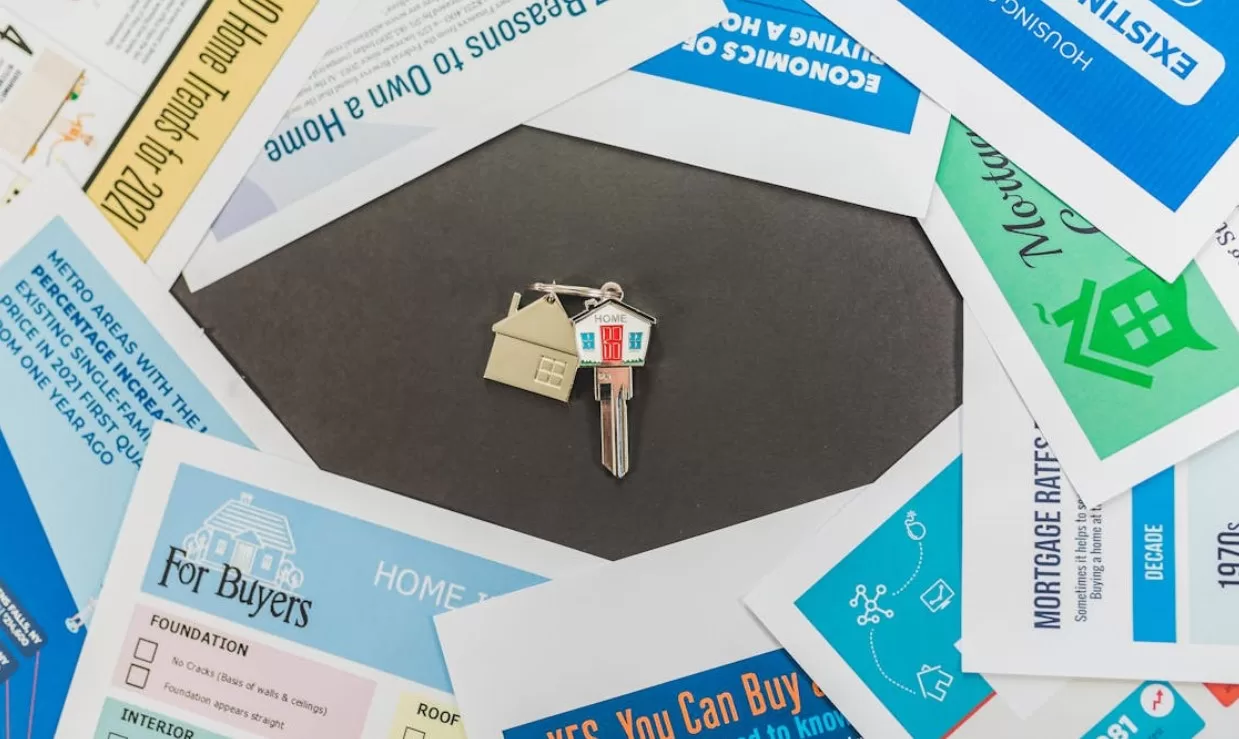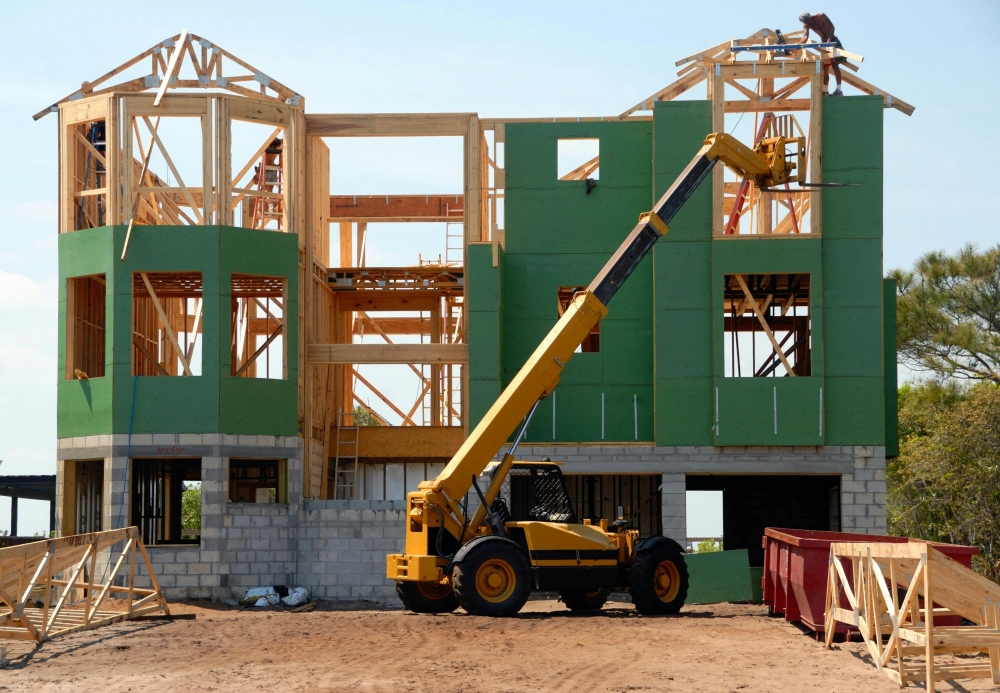Selecting an appropriate mortgage alternative stands as a pivotal consideration for individuals in the market for a new residence. The landscape of mortgage opportunities presents a spectrum, necessitating a deep dive into how each variant might influence your fiscal horizon.
Observations of the current climate indicate a notable fluctuation in mortgage rates, amplifying the need for prospective buyers to meticulously analyze their options. For example, a significant peak in rates at an average of 7.4% in November 2023 was followed by a reduction to 6.8% and 6.6% in subsequent months. This downward trend has rendered the prospect of homeownership more attainable for a broader audience, highlighting the value of keeping abreast of market dynamics.
This article navigates the comparison of mortgage alternatives, aiming to equip you with the knowledge to make a choice that resonates with your financial aspirations over the long haul. Let’s delve into the specifics.
Deciphering Mortgage Variants
The mortgage market primarily segments into fixed and adjustable-rate mortgages (ARMs). A fixed-rate mortgage secures your interest rate across the loan’s life, ensuring consistency in your monthly outlays. This steadiness facilitates straightforward financial planning, as the exact monthly expenditure remains clear.
Conversely, adjustable-rate mortgages introduce a period of fixed interest, succeeded by rate adjustments at set intervals. Though ARMs might initially present lower rates compared to fixed-rate mortgages, the potential for future increases poses a financial uncertainty.
Reverse Mortgages: A Distinctive Option
Reverse mortgages present a unique option for individuals over 62, particularly beneficial for those looking to purchase a property in retirement. This financial tool allows the conversion of home equity, acquired throughout the years on the current residence, into cash without the need for monthly repayments, with the loan repaid upon moving or selling the property.
For retirees looking to buy another property in areas with high real estate values, like California, a reverse mortgage for purchase can significantly enhance buying power. This approach allows them to acquire a home without burdening their retirement savings, leveraging California’s robust property market for greater financial flexibility.
In essence, considering a reverse mortgage in California could be a strategic move for retirees aiming to optimize their financial assets while securing a home, offering a blend of ownership and financial liberty.
Comparing Government-Backed and Conventional Loans
The dichotomy between government-backed loans (including FHA, VA, and USDA) and conventional loans reveals distinct advantages and criteria. Government-backed loans are characterized by lower initial payment demands and relaxed credit requirements, thus extending accessibility.
For instance, VA loans exempt veterans and active-duty military personnel from down payments. Yet, these loans may entail specific qualifications and additional costs, such as mortgage insurance premiums. Conventional loans, with their stricter credit and down payment standards, forego these additional expenses and offer greater flexibility in loan conditions.
Mortgage Term Lengths: Essential Insights
The duration of your mortgage term exerts a significant influence on your monthly commitments and the cumulative interest throughout the loan. Opting for a short-term mortgage, like a 15-year agreement, generally yields lower interest rates at the expense of higher monthly dues. Despite the potential strain on immediate finances, this strategy accelerates equity buildup and reduces long-term interest expenditure.
Furthermore, shorter-term mortgages often align with financial strategies for those nearing retirement, aiming for minimal debt during their non-working years. This strategy grants the possibility to adjust the loan through refinancing should interest levels fall, thereby avoiding the extension of financial obligations into the distant future.
The Influence of Interest Rates on Mortgage Repayments
Interest rates stand as a principal element in setting your mortgage dues, swayed by general financial climates, the specifics of your credit history, and the distinct conditions outlined in your lending agreement. Achieving a favorable interest rate can result in substantial savings over the loan’s lifespan, underscoring the importance of comparing lender offers and enhancing your credit rating before application.
Locking at a low rate when the market is favorable can provide financial security and predictability, protecting against future economic volatility. It’s essential to recognize that rates fluctuate based on a complex interplay of global and local economic factors, making timing and market research invaluable. Engaging with a financial advisor or a mortgage broker can provide insights and strategies to navigate these variables effectively.
Anticipating Additional Expenses
Procuring a mortgage involves more than principal and interest payments; closing costs and, potentially, private mortgage insurance (PMI) for down payments under 20% on conventional loans also come into play. Grasping these extra charges is crucial for an accurate assessment of the overall home purchase cost. Being mindful of these expenses early on can prevent surprises at closing and ensure a smoother homebuying experience.
Advantages of Early Mortgage Approval
Getting an early nod on your mortgage application before you start looking at homes brings significant perks: it sets a clear spending limit, improves your negotiation power, and speeds up the buying process. This step involves a lender checking your financial health thoroughly, resulting in a letter that spells out how much they’re willing to lend you.
Conclusion
Selecting the appropriate mortgage requires a thorough examination of various aspects—analyzing diverse loan structures, repayment timelines, interest charges, and additional costs. By acquiring a comprehensive grasp of these elements and closely monitoring economic conditions, you are positioned to choose a mortgage option that aligns with your immediate financial needs while bolstering your fiscal prospects. Optimal mortgage selection is achieved when it harmonizes with your present financial capacity and contributes to the expansion of your financial assets in the long run.













